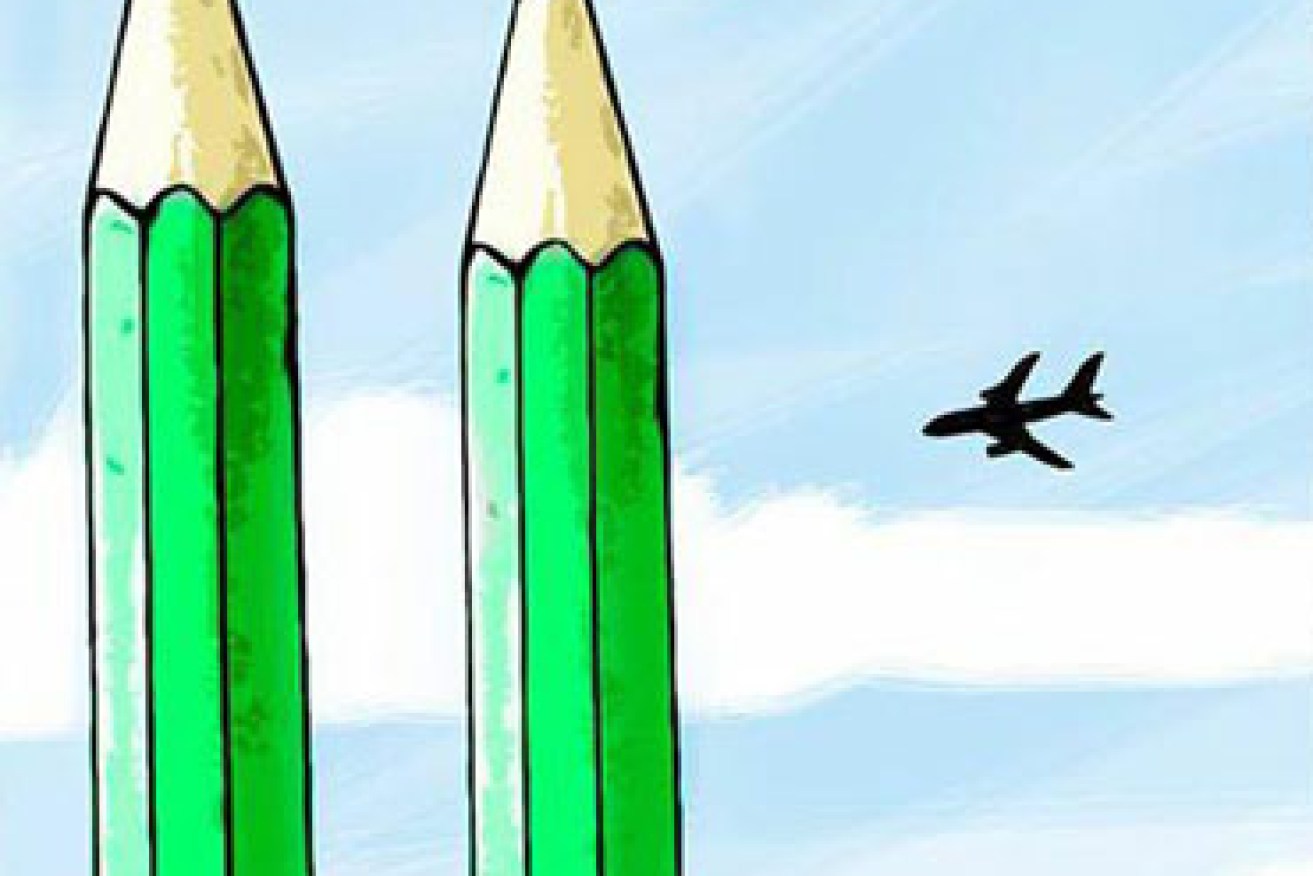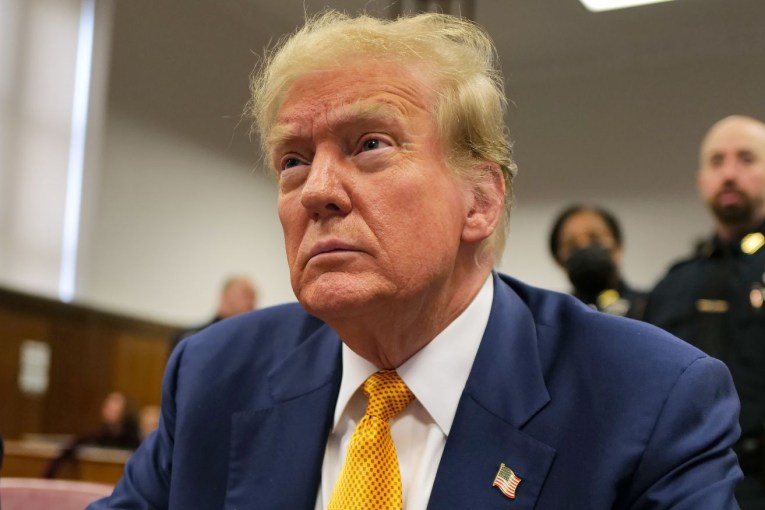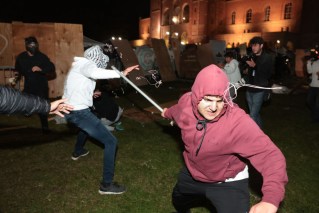Paris shooting: free speech in the firing line

Ruben L Oppenheimer
France, a nation with a proud history of defending liberty, is mourning the death of 12 of its citizens today. They were gunned down by terrorists attempting to silence a publication that valued freedom of speech above all else, and frequently tested its limits.
Three heavily armed gunmen are believed to have shouted ‘vindication for the Prophet Mohammed’ as they murdered six journalists, four of the nation’s most cherished cartoonists and two policemen at the headquarters of satirical magazine Charlie Hebdo.
The terrorist attack has ignited debate over the bounds of freedom, self-censorship, and the blurred lines between free speech and hatred.
• ‘Je suis Charlie’: World’s cartoonists take a stand
• Paris suspect hands himself in: reports
• Paris shooting: a tribute to the victims
A hail of bullets, the modern equivalent of the sword, could have silenced French pens for a day, but the nation, and people all over the world, refuse to be quiet.
The arts community and the media have collectively declared ‘We are Charlie’, but editors and citizens alike may be questioning when, in the interest of peace, Charlie should bite his tongue.
French ambassador to Australia Christophe Lecourtier told media on Thursday that the terrorist shooting was an attempt to “kill” freedom of expression and freedom of the press.

A Parisian holds up a pen in tribute to murdered French journalists. Photo: Getty
Prime Minister Tony Abbott described the attack as “barbaric” and reaffirmed these freedoms are “the cornerstone” of a free society, but he has in the past repeatedly reminded voters that freedom is not without limits, especially where terrorism is concerned.
The fiercely independent French magazine, which publishes no adverts and attacks all religions and political parties indiscriminately, has a history of inflaming controversy by lampooning the Prophet Mohammed.
Its headquarters were firebombed three years ago after it published a special edition titled ‘Charia Hebdo’ and invited the Prophet Mohammed to be its guest editor.
Speaking to the BBC after the attack in 2011, the paper’s editor-in-chief Stephane Charbonnier (who was killed in Wednesday’s attack) said he would rather die than be silenced.
But Mr Charbonnier made it clear that the bombing was the act of “idiot extremists” and not representative of all Muslims who lived in France.
Australia’s Human Rights Commissioner Tim Wilson, a fierce advocate of free speech, tells The New Daily the freedoms that these journalists “died defending” must be upheld, even when free speech falls outside of the “parameters of social acceptability”.
“If we are not prepared to allow offensive or insulting expressions, then we are imposing censorship on challenging ideas and expressions,” Mr Wilson says.
The modern history of violent retribution for criticism of Mohammed dates back to the publication of Salman Rushdie’s Satanic Verses in 1988.
Death threats and million-dollar bounties were issued by Muslim leaders against Mr Rushdie for the ‘blasphemous’ book, forcing him into hiding for almost two decades.

Tributes flooded Paris in memory of the Charlie Hebdo editor and staff. Photo: Getty
Two publishers and one translator who worked on the book were attacked, one of them fatally.
In a statement following the attack on Wednesday, Mr Rushdie said that the “art of satire” must be defended from extremism, which he termed a “deadly mutation in the heart of Islam”.
“I stand with Charlie Hebdo, as we all must, to defend the art of satire, which has always been a force for liberty and against tyranny, dishonesty and stupidity,” Mr Rushdie said.
Australia engaged last year in a modest debate about free speech, centred on the nation’s hate speech laws.
Attorney-General George Brandis had sought to loosen the law so that merely causing offence could not be punished.
During the debate, the Attorney-General was widely criticised for his now infamous ‘right to be bigoted’ comment, but his full quote takes on new meaning in light of the Paris attack.
“In a free country, people do have rights to say things that other people find offensive or insulting or bigoted,” Senator Brandis said.
According to barrister Geoff Holland, who practices and lectures in the area of free speech, the Charlie Hebdo cartoons were “obviously” offensive, but that is no reason for free speech to be restricted. In fact, quite the opposite.
“The real problem is the risk of self-censorship because of fear,” says the barrister.
Mr Holland agrees that the terror attack will spark further debate on free speech and hate speech in Australia, but warns against overreach.
“It’s a good thing for society to have these debates, but I also think that we need to be cautious in how we react,” says Mr Holland, who thinks current laws are reasonable.

One of the many cartoons drawn in solidarity with Charlie Hebdo. Photo: Ruben L Oppenheimer
In 2007, Danish newspaper Jyllands-Posten published 12 caricatures of Mohammed, which again inflamed tensions and resulted in deadly riots and acts of violence.
Charlie Hebdo chose to reprint the cartoons, which the magazine’s editor Mr Charbonnier insisted was not an act of provocation.
Some media commentators disagreed, arguing that the cartoons were insensitive and a deliberate religious attack.
The magazine was sued for incitement to racism by two Islamic groups in France, but was cleared by a Paris court.
In Wednesday’s attack, the gunmen reportedly headed straight for the editor, killing him and the police escort assigned to protect his life.
“I would rather die standing than live kneeling.”
Those were Mr Charbonnier’s words in 2012 – and they ring louder than gunfire.








